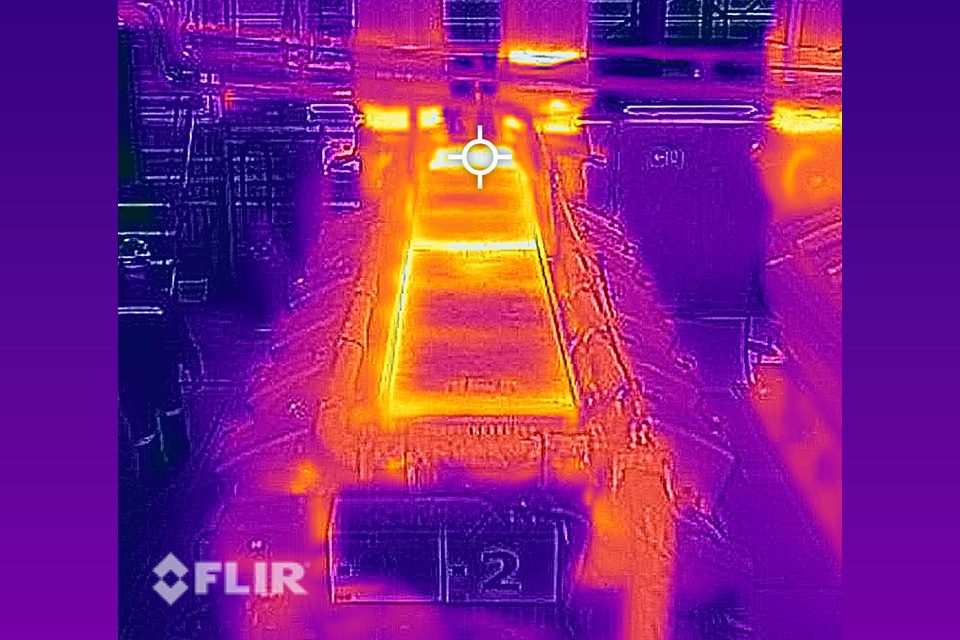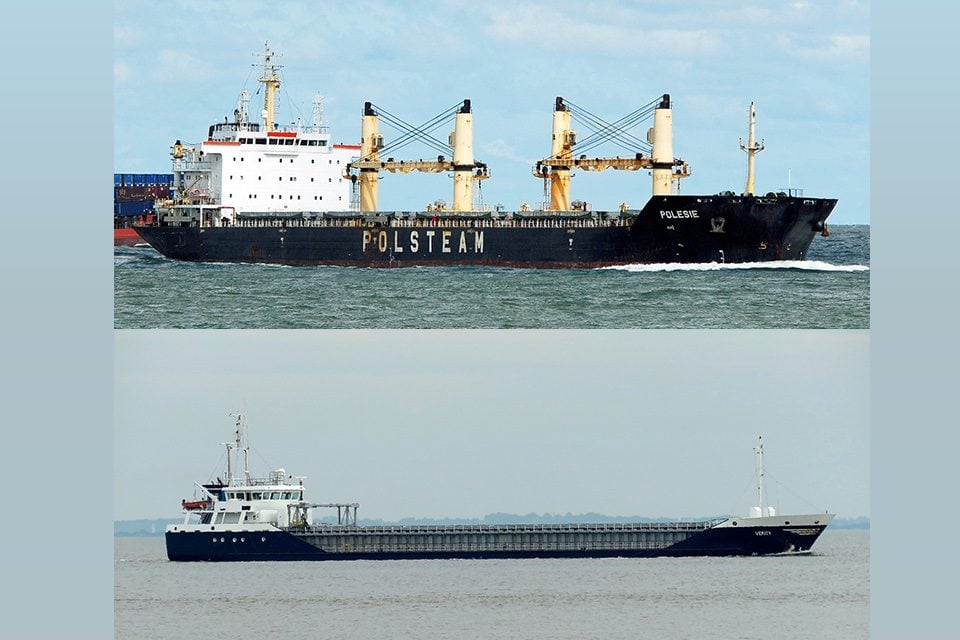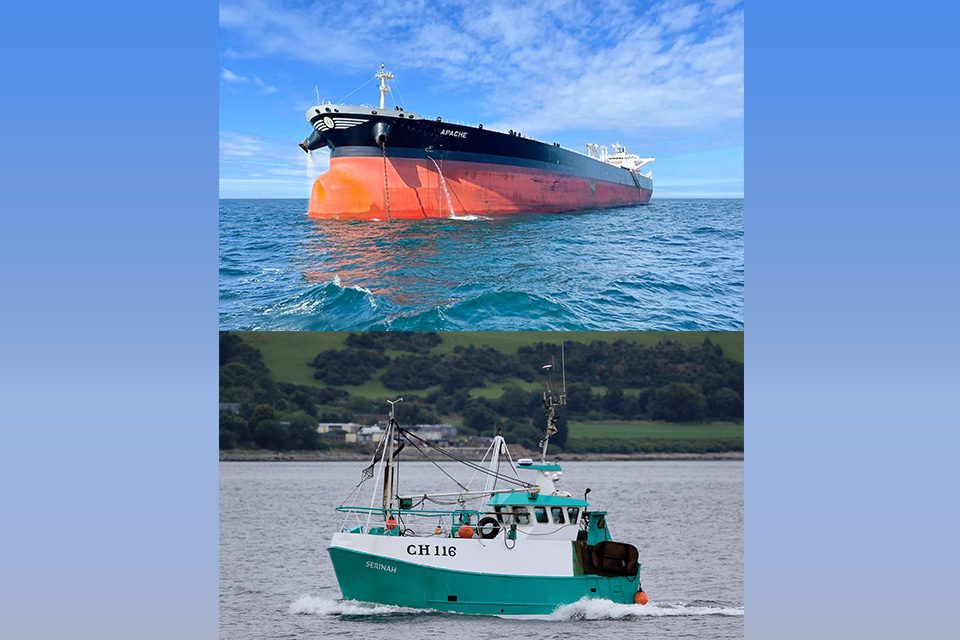UK investigators are urging the International Maritime Organization (IMO) to mandate thermographic equipment for hot surface detection following a serious engine room fire aboard the passenger ferry Stena Europe.
The incident occurred on February 11, 2023 as the vessel approached Fishguard, Wales from Rosslare, Ireland, and resulted in substantial damage to the port main engine room. The fire, which fortunately caused no injuries or pollution, disabled one of the ferry’s four main engines for several weeks.
“The investigation revealed critical safety oversights,” says the Marine Accident Investigation Branch report.
Investigators discovered that fuel had ignited on an exhaust system surface exceeding 400°C, with subsequent inspections revealing compromised or absent protective shielding around fuel systems on all engines. Particularly concerning was the discovery of exposed hot surfaces above 220°C on all operational engines.
The case highlighted a long-standing vulnerability in the engine design. Engine manufacturer Wärtsilä had identified potential fuel system leakage issues as far back as 1995 and had developed modification solutions. However, only one of Stena Europe’s four main engines had received the complete modification package.
In response to these findings, the Maritime and Coastguard Agency is now recommending amendments to Maritime Safety Committee Circular 1321, specifically calling for mandatory thermographic equipment to identify hot surfaces that could pose risks from pressurized oil contact.
Stena Line Ltd faces multiple recommendations, including a comprehensive review of their defect reporting systems, enhanced equipment inspection protocols, and the implementation of thermal imaging cameras across their entire fleet. The company has also been directed to share details of this incident throughout their operations to prevent similar occurrences.
The investigation’s findings underscore the critical importance of proactive safety measures in maritime operations. Key issues identified included ineffective fire protection systems, delayed implementation of known safety modifications, insufficient crew training for engine system inspections, and inadequate temperature monitoring equipment.
Editorial Standards · Corrections · About gCaptain

 Join The Club
Join The Club











